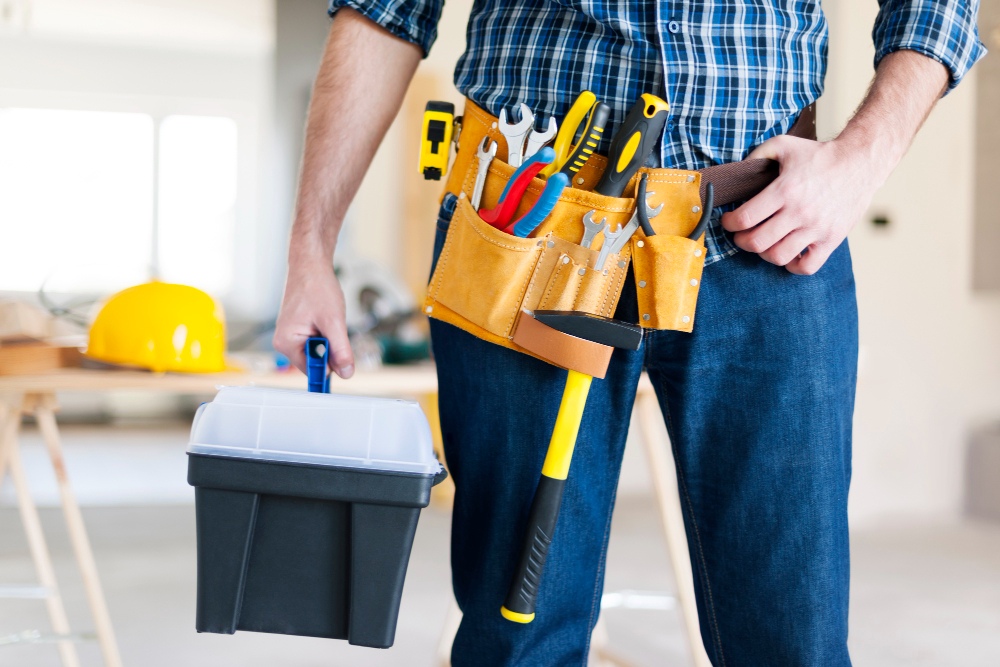

Moving into a new apartment brings excitement, but it also comes with responsibilities that extend beyond paying rent on time. Whether you're settling into your first place or you're a seasoned renter, understanding basic apartment maintenance can save you money, prevent bigger problems, and help maintain a positive relationship with your landlord.
Proper apartment maintenance isn't just about keeping your space looking good—it's about protecting your security deposit, avoiding costly repairs, and creating a comfortable living environment. Many renters assume that all maintenance falls under the landlord's responsibility, but the reality is more nuanced. Knowing what you're responsible for and how to handle common issues can make your rental experience much smoother.
This guide will walk you through essential maintenance tasks, help you understand your responsibilities as a tenant, and provide practical tips for keeping your apartment in excellent condition throughout your lease.
Before diving into specific tasks, it's crucial to understand what typically falls under tenant versus landlord responsibilities. Your lease agreement should clearly outline these divisions, but general guidelines can help you navigate gray areas.
Tenant Responsibilities Usually Include:
Landlord Responsibilities Typically Cover:
Understanding these boundaries helps you take appropriate action when problems arise and ensures you're not overstepping or neglecting your duties.
One of the most overlooked yet important tasks is changing your HVAC air filter regularly. A clogged filter forces your system to work harder, increasing energy costs and potentially causing damage.
Check your filter monthly and replace it every 30-90 days, depending on usage and filter type. If you have pets or allergies, you may need to change it more frequently. Most standard filters cost under $10 and can be found at any hardware store.
Prevent costly plumbing issues by maintaining your drains properly. Pour hot water down kitchen and bathroom drains weekly to help dissolve grease and soap buildup. Avoid putting grease, coffee grounds, or large food particles down the kitchen sink.
For bathroom drains, remove hair regularly and consider using a drain screen to catch debris before it causes problems. If you notice slow drainage, address it immediately rather than waiting for a complete blockage.
Test smoke detectors monthly by pressing the test button. If the alarm doesn't sound, replace the batteries immediately. Even hardwired detectors often have battery backups that need regular replacement.
If your apartment has a carbon monoxide detector, test it monthly as well. These devices save lives, so don't skip this simple but critical task.
As temperatures rise, your air conditioning system will work harder. Clean around exterior units by removing leaves, debris, and overgrown vegetation that might restrict airflow. Inside, ensure vents aren't blocked by furniture or curtains.
Check window screens for holes or damage that might let insects in. Small tears can often be repaired with screen repair kits available at hardware stores.
Before cold weather arrives, check for drafts around windows and doors. Weatherstripping is inexpensive and can significantly reduce heating costs while keeping your apartment more comfortable.
If you have a fireplace, ensure the damper closes properly and the screen is intact. Never leave fires unattended, and have the chimney inspected annually if you use it regularly.
Water damage can be expensive and is often preventable with simple precautions. Don't ignore small leaks or moisture issues—they can quickly become major problems.
Keep bathroom exhaust fans running during and after showers to reduce humidity. Wipe down shower walls and doors regularly to prevent mold growth. If you notice any discoloration or musty odors, report them to your landlord immediately.
Treat appliances with care to extend their lifespan and avoid replacement costs. Clean refrigerator coils every six months to improve efficiency. Don't overload washing machines or dryers, and clean the lint trap after every load.
Keep appliance manuals in an accessible place and follow manufacturer maintenance recommendations. This simple step can prevent many common appliance failures.
Knowing when to handle issues yourself versus when to contact your landlord is crucial. Generally, contact your landlord for any problem that could worsen if left untreated or requires specialized knowledge to fix safely.
Call Your Landlord Immediately For:
Document all maintenance requests in writing, preferably through email or your landlord's preferred communication method. This creates a paper trail and helps ensure timely responses.
Effective communication and proactive maintenance create positive relationships with property managers and landlords. Report issues promptly rather than waiting for small problems to become major repairs.
When reporting issues, be specific about the problem, when it started, and what you've already tried to fix it. Include photos when helpful, and be reasonable about urgent versus non-urgent requests.
Respect your landlord's time by grouping non-emergency maintenance requests when possible. This consideration often leads to faster responses and better service overall.
Taking care of your apartment isn't just about avoiding problems—it's about creating a space you're proud to call home. Regular maintenance keeps your living environment comfortable, safe, and enjoyable throughout your lease.
Remember that good maintenance habits benefit everyone involved. You'll likely receive your full security deposit back, avoid unexpected expenses, and maintain a positive rental history for future applications.
If you're looking for apartments for rent in Gainesville, FL, contact The Mayfair Apartments today to schedule a personal tour. Our well-maintained properties and responsive management team make apartment living easy and enjoyable.